Affiliate links on Android Authority may earn us a commission. Learn more.
I've taken a ton of sleep trackers to bed: Here are my top 9


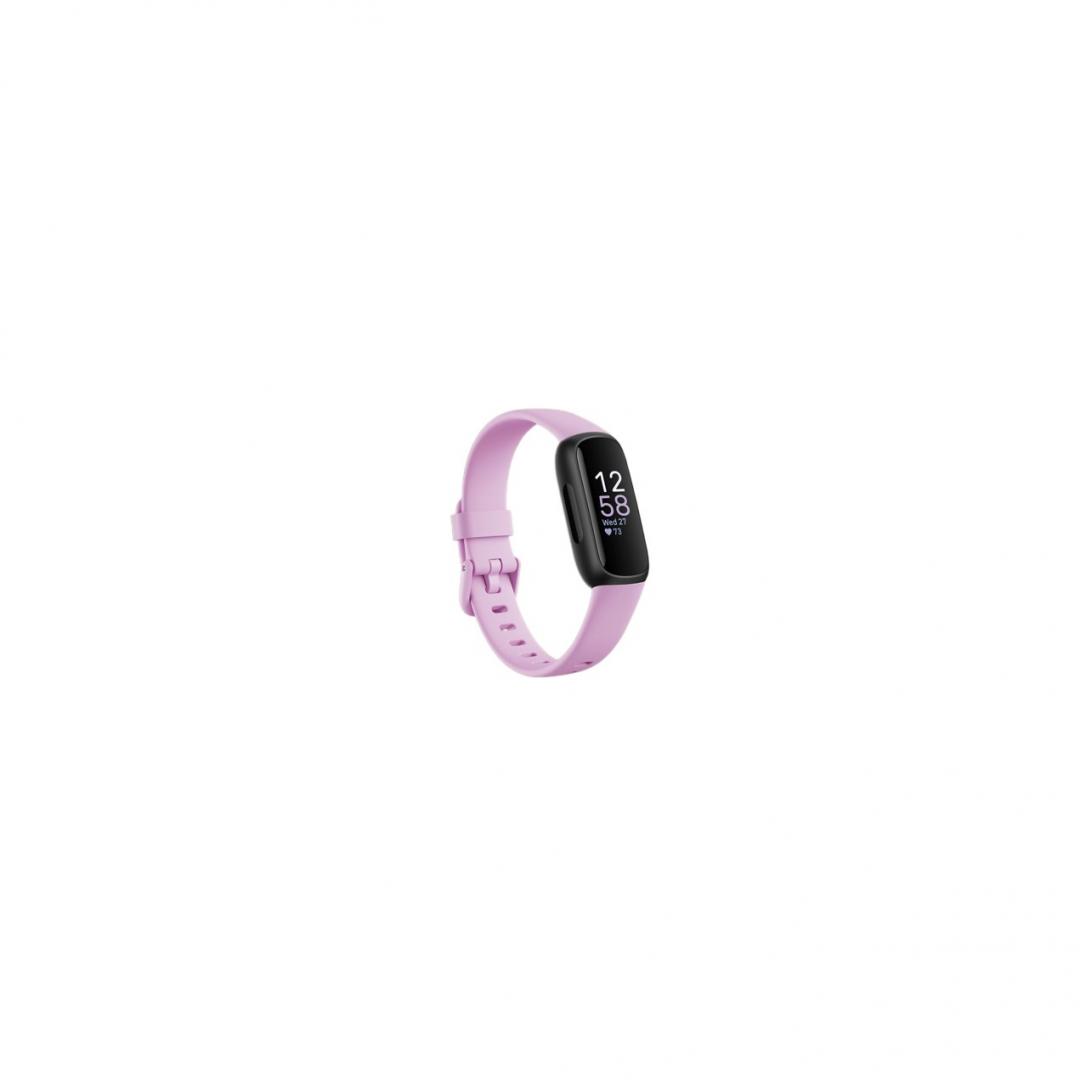
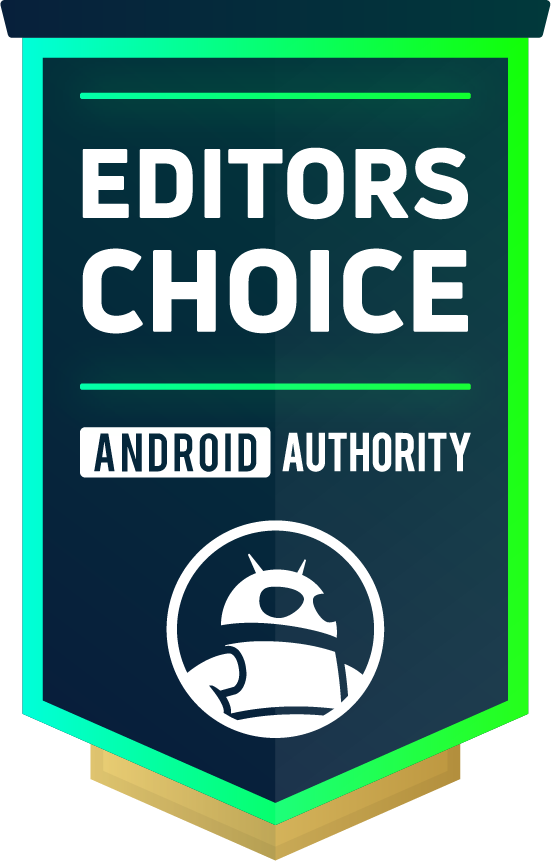
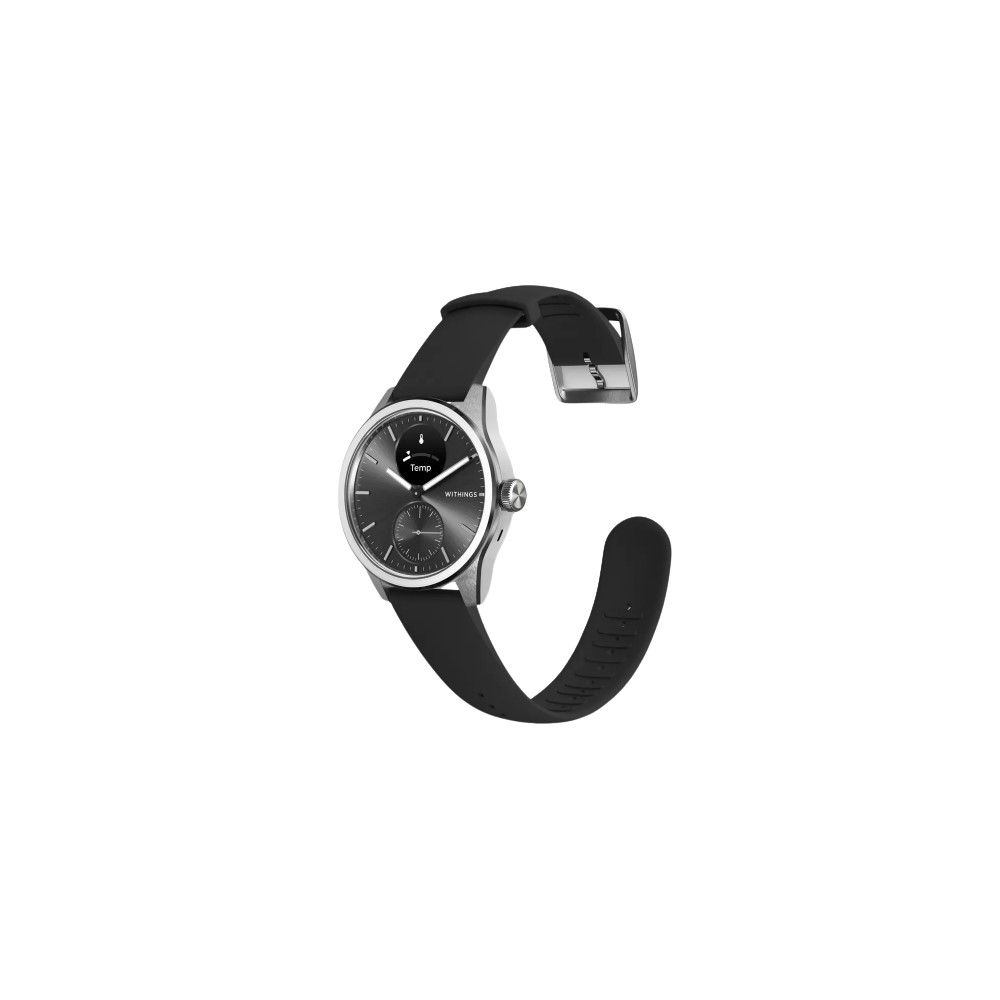

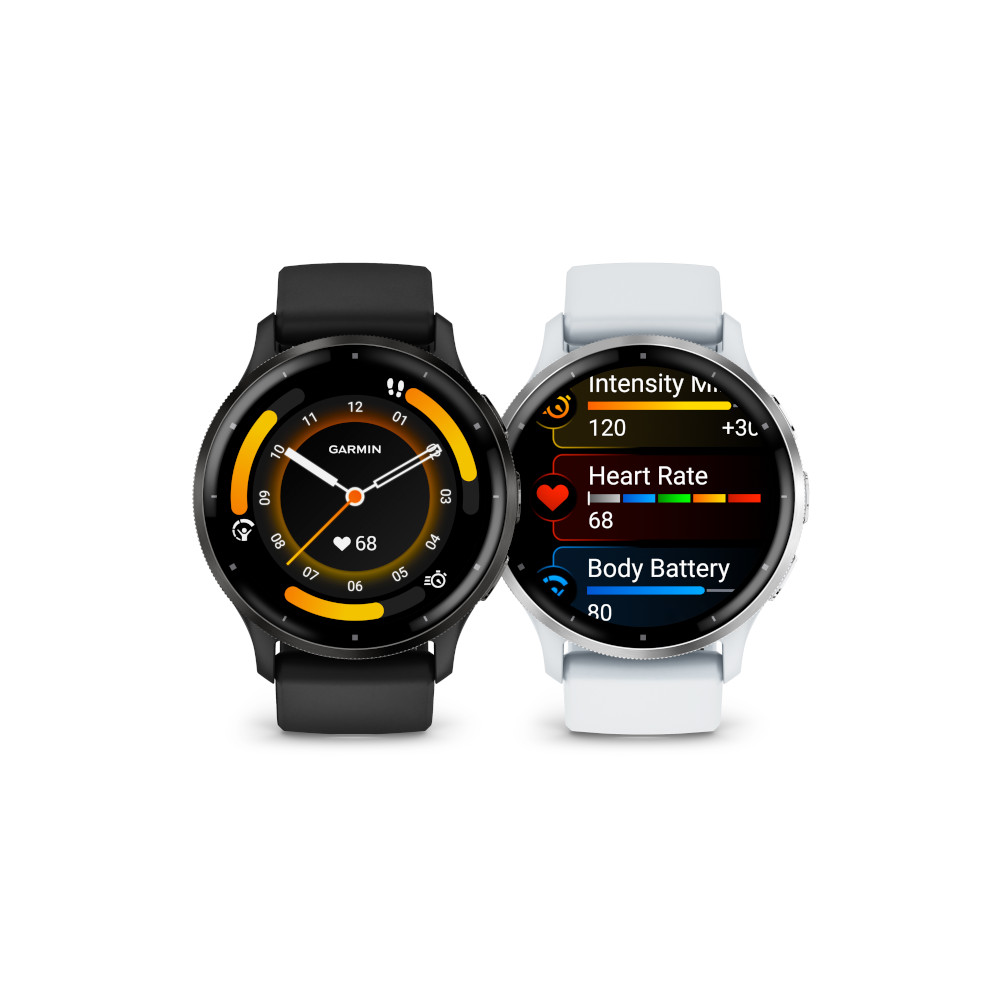






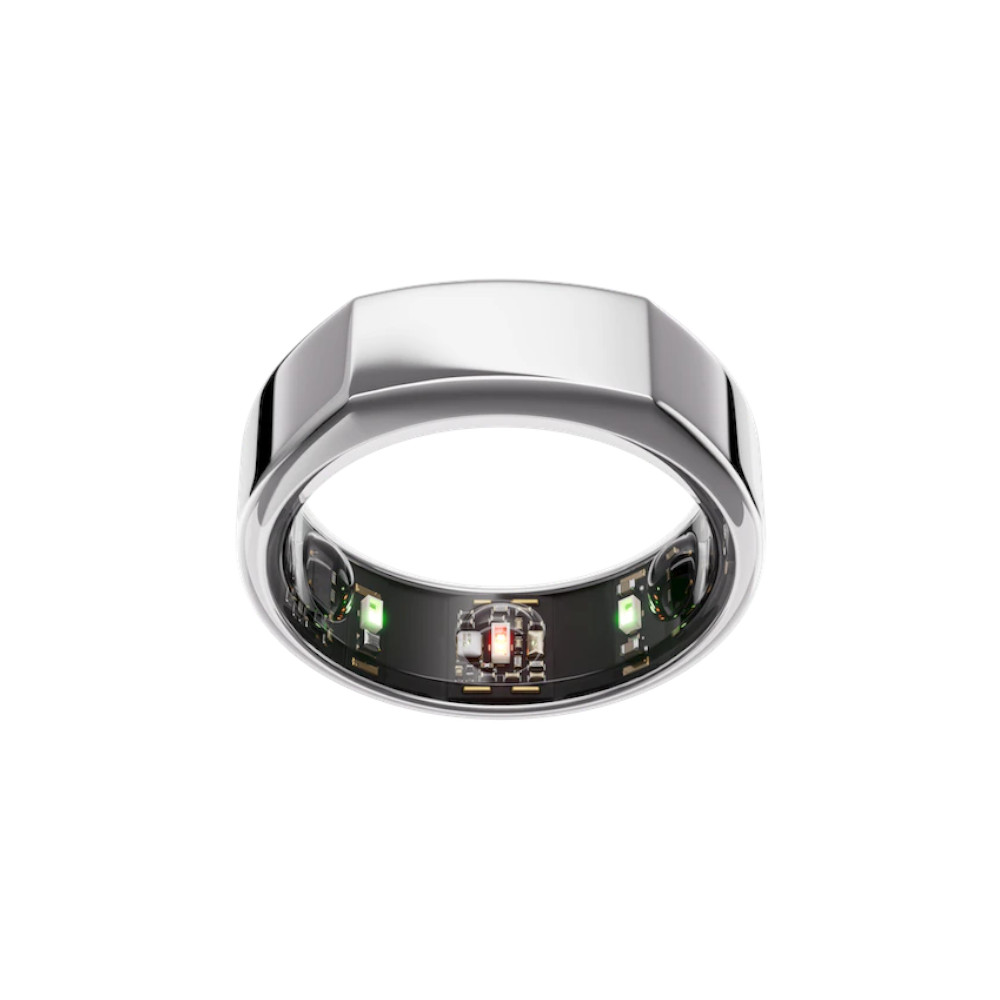



Getting a good night’s sleep is one of the most important factors in staying healthy (and happy). If you aren’t getting enough shut-eye, a sleep tracker might be exactly what you need. Fortunately, there are plenty of sleep-tracking apps and devices that can help. I’ve rounded up the best sleep trackers available, including smartwatches, fitness trackers, earbuds, and a non-wearable.
The Fitbit Charge 6 is the best sleep-tracking wearable available


Many Fitbit devices nail sleep tracking, and the Charge 6 is no exception. The small-form tracker is very comfortable to sleep in and provides accurate data, a useful sleep score, and access to Fitbit’s Sleep Profile program. Sleep Profile involves monitoring your sleep for an entire month, then analyzing the long-term data to determine your sleep phenotype — one of six types of sleep habits. Each month, you will find your phenotype in the Fitbit app, along with information about your sleep habits and suggestions for improvement. I find the program useful with plenty of insights, and I love the sleep animals Fitbit utilizes to distinguish sleep phenotypes.
What further sets the Charge 6 apart is its feature set beyond sleep tracking. Of the devices on this list, it offers one of the most well-rounded experiences available. It’s a solid activity tracker for keeping tabs on all the basics, including steps, heart rate, and SpO2, and offers EDA scans to check stress levels. It boasts more than 20 sports modes, plus an updated heart rate sensor that leverages AI for improved accuracy. I wasn’t overly impressed with the tracker’s built-in GPS, but it does offer connected GPS if needed. It also packs a handful of Google’s top tools, including integration with Google Maps, Google Wallet, and YouTube Music controls, all on a colorful AMOLED display.
In short, the Charge 6 is Fitbit’s top tracker, and in light of recent changes to the company’s stable, the best Fitbit available (beyond the Pixel Watch line). Fitbit is even incorporating a Health AI chatbot into the user experience to further help users analyze important metrics and access useful insights. If you can swing the Google Pixel Watch 2, you’ll find the same sleep tracking and an even more robust smartwatch experience, but if you want an affordable, reliable sleep tracker with a few daytime perks, the Charge 6 is my top pick.
What makes them stand out
- Consistently reliable sleep data: Fitbit offers some of the most reliable sleep tracking data I’ve gotten my hands on. In fact, I often use Ftibit’s devices to test the performance of other brands when reviewing new wearables.
- Scientific insights: Fitbit analyzes an unprecedented amount of data and filters it all down to digestible insights you can actually act on. The Sleep Profile program revolutionizes users’ understanding of sleep hygiene and helps users build better habits.
- It’s a Fitbit: Particularly for those new to tracking, Fitbit offers a well-rounded and approachable ecosystem.
- Beyond the bed: Once the sun rises, the tracker delivers useful tools to your wrist, including popular Google apps.
Best of the rest: 8 other sleep trackers worthy of your consideration
Fitbit’s latest tracker is my top pick for the best sleep tracker you can get, but it’s not the only option. The eight devices below are also great for overnight tracking.
- Withings ScanWatch 2: The best watch for detecting sleep apnea, the Withings ScanWatch 2 is one of the only wearables to monitor for signs of the condition. The second generation introduces some key features to the already powerful lineup.
- Fitbit Inspire 3: For users interested in the Fitbit ecosystem but seeking a budget-friendly option, the Inspire 3 is a great, affordable choice.
- Garmin Venu 3: The Venu 3 is the best Garmin sleep tracker. It offers sleep score functionality powered by Garmin-owned Firstbeat, plus automatic nap detection.
- WHOOP 4.0: The WHOOP 4.0 is an attractive, comfortable, screen-free tracker focusing on heart rate data and long-term trends.
- Withings Sleep: The best non-wearable sleep tracker is the Withings Sleep. Place it under your mattress and forget about it till morning.
- Kokoon Nightbuds: A wearable option for somewhere other than your wrist, Kokoon Nightbuds help you fall asleep to your favorite calming audio and monitor your rest overnight.
- Oura Ring 3: Oura’s latest ring is the best pick for an inconspicuous, finger-based tracking experience by day and accuracy by night.
- Apple Watch Series 9: With unmatched third-party app support, Apple offers the best smartwatch experience available but it also boasts reliable sleep tracking.
The Withings ScanWatch 2 is the best for sleep apnea detection


The Withings ScanWatch 2 is one of the most detailed sleep trackers available and one of the most accurate watches I’ve tested. On top of recording sleep duration, depth, regularity, and interruptions, it uses a medical-grade SpO2 monitor to detect breathing disturbances overnight. It performs a Respiratory Scan, which measures users’ heart rate, heart rate variability, respiratory rate, and oxygen saturation levels to identify any concerns. The device also offers temperature sensing for deeper sleep insights and more accurate health tracking beyond the bed, specifically regarding women’s health. I found these additions elevate the lineup significantly and have really appreciated the added tools. Like the previous model, the watch also provides on-demand ECG and SpO2 recordings.
The device is also simply a gorgeous watch. Hybrid smartwatches are the perfect way to tap into smart features without broadcasting that you’re tracking data. The ScanWatch 2 utilizes such a small display it’s easy to pass off as a traditional timepiece. Meanwhile, I never had trouble viewing my key stats at a glance despite the small display window. Plus, with a stainless steel case and a sapphire glass display, the Withings ScanWatch 2 not only looks great, but it’s also quite durable, and it comes in two sizes, 38mm and 42mm, so it is likely a good fit for most wrists.
Perhaps the best part of the hybrid device is its fantastic battery life. Thanks to its small display, the ScanWatch 2 can last up to 30 days between charges. I found this long-lasting battery life incredibly freeing during my review period, especially compared to devices that require daily charges like the Apple Watch. When you do need to recharge the ScanWatch 2, powering the device from 0 to 100% takes about two hours, which isn’t bad considering how infrequently you’ll need to do so. Where this watch might fall short for shoppers is its smartwatch features. Like most hybrids, the ScanWatch lacks the well-rounded experience you’ll find on full-blown smartphone companions like the Apple Watch below or the Fitbit above.
What makes it stand out
- Medically validated: The ScanWatch 2 boasts clinically validated health sensors and offers potentially life-saving AFib and breathing disturbance notifications. It also introduces new 24/7 temperature monitoring.
- Easy on the eyes: A classy device featuring premium build materials, this versatile watch fits in at the bar and in a boardroom. It’s the perfect device for anyone who wants to track their health without strapping on a sporty smartwatch.
- Incredible battery life: Thanks to its small display, the Withings ScanWatch 2 can last up to 30 days between charges.
The Inspire 3 is the best affordable sleep tracker from Fitbit


This will eventually get old to hear, but Fitbit puts out some of the best sleep trackers available. If you want a device with a small form factor, stellar sleep tracking, and an even lower price tag than the Charge 6, Fitbit’s Inspire 3 is a great buy. Like its more expensive sibling above, the Inspire 3 tracks your sleep time and stages (light, deep, REM). It will also record any intervals you spent awake throughout the night. It’s comfortable on the wrist, features a ton of band options, and stood up to daily wear during my review period.
Like the Charge 6, the Inspire 3 also provides a sleep score. I found the device’s scores accurate during my Fitbit’s Inspire 3 review compared to my perceived exhaustion and was especially impressed when it kept up with my largely disrupted sleep patterns due to travel. In the morning, I especially appreciated the Smart Wake alarms that helped optimize my REM cycles. Compared to other fitness trackers at this price point, the Fitbit Inspire 3 provides fantastic, reliable sleep data. It’s also just a strong wearable with plenty else to offer.
The device offers more than 20 exercise modes for working out, plus SmartTrack automatic activity recognition. Unfortunately, GPS is not built into the Inspire 3, so you’ll have to carry your phone on runs and rides. However, the full-color touchscreen provides easy navigation and on-screen data. It also offers 24/7 heart rate monitoring and continuous SpO2 tracking, both of which performed well during my review period. In short, the device is one of the best cheap sleep trackers available, with a lot to offer beyond the bed.
What makes it stand out
- Affordability: Catching Zs shouldn’t break the bank. This option from Fitbit only costs about $100 but offers fantastic data.
- Small impressions, big results: If a bulky watch keeps you up at night, this slim tracker might be a helpful option. It’s extremely lightweight and comfortable without sacrificing sensors or accuracy.
- Fitbit is simply the best: The biggest strength of the Inspire 3 is its brand name. For some of the most detailed tracking in the game, Fitbit is the play.
The Garmin Venu 3 Plus is the best sleep tracker from Garmin


If you’re deep in the Garmin ecosystem (which is a great place to be), I highly recommend the Garmin Venu 3. Arguably the top smartwatch for sleep tracking, the device represents the best of Garmin’s sleep tracking platform with automatic nap detection and on-device sleep coaching. It also packs a powerful toolkit for daytime use, including advanced fitness tracking and highly accurate GPS. Most importantly, it’s one of my favorite smartwatches available, especially for fitness-tracking buffs.
On the sleep front, the Venu 3 boasts Garmin’s Sleep Score feature, powered by Firstbeat. Coupled with the company’s Body Battery feature, Sleep Score allows you to dig into your energy levels and determine how well-rested you are each morning. This can be especially helpful for athletes who need to decide what type of training to plan for the day. The watch also offers Daily Summary and Morning Report, two onscreen alerts that help condense data into actionable insights. I use the tools to keep quick tabs on my overall wellness and to plan my training sessions. Overnight, the Venu 3 measures sleep duration, stages, and total time awake and also tracks blood oxygen levels, respiration rates, and overnight movements. As mentioned, it also offers sleep coaching with detailed guidance and analysis. The platform provides a breakdown of your sleep quality and provides tips on how to improve your daily habits and bedtime routine.
Beyond the bed, the Venu 3 is a more well-rounded smartwatch than ever and easily one of the best Garmin watches you can buy. The company’s smartwatch for the masses, I love the device’s excellent build and incredible GPS accuracy. It also supports on-wrist voice assistants and on-wrist phone calls. This is in addition to a broad list of trackable workouts and a ton of Garmin’s top training tools. The watch even features an FDA-approved ECG app for taking on-demand readings and monitoring signs of AFib.
What makes it stand out
- Garmin Connect is dense with data: Garmin’s companion app offers more insight and data analysis than most competitors. For an intense look at your shut-eye, Garmin delivers.
- Great all day as well: This device isn’t just a good bedmate; it’s also a well-rounded smartwatch and a very accurate fitness tracker with an FDA ECG app.
- It makes Garmin accessible: Unlike Garmin’s Fenix 7 or Instinct lineups, the Venu 3 is an approachable, well-rounded device that won’t overload users with too many niche features.
The WHOOP 4.0 is the best wearable sleep tracker without a screen


A screen-free band-style tracker, the WHOOP 4.0 offers a unique tracking experience and very accurate sleep data. The device focuses on users’ all-day heart rate measurements, organizing the results into a breakdown of strain and recovery. Since it lacks any type of display, viewing data takes place entirely in the tracker’s companion app. During my review, I found these unconventional aspects of the device refreshing. The screen-free experience means checking in on your data when it’s convenient rather than obsessing over constant metric readouts and notifications. The 24/7 heart rate tracking and focus on strain versus recovery emphasize overall wellness and turn fitness tracking into a relatively passive experience.
Overnight, the WHOOP 4.0 shines. The nylon band and tracker are very comfortable for sleeping, and the multi-day battery life makes it easy to keep the tracker ready for use. You can even charge the WHOOP 4.0 while it’s on your wrist, so you never miss a beat. Compared to the previous model, the 4.0 adds SpO2 tracking and a temperature sensor for even more accurate sleep tracking. The device consistently nailed my sleep and wake times and recorded sleep stages consistent with other reliable sleep trackers. Meanwhile, WHOOP also records users’ input within the app’s Journal feature. Each morning, you’ll receive the prompt “What happened yesterday?” inviting you to record details that may be affecting your sleep quality. You can then choose what specifics you want to record with options including everything from hydration, travel, or alcohol intake to caffeine and mental health factors. I found this feature makes it very easy to identify trends and pinpoint the result of specific behaviors regarding sleep quality.
Unfortunately, the WHOOP 4.0 is not a cheap device. While the tracker is considered “free” with a WHOOP membership, the subscription fee is $30 per month, and a 12-month membership is required to start. This is not my favorite payment structure for wearables. However, if that monthly commitment doesn’t phase you, the WHOOP 4.0 is an excellent, no-frills tracker that can help you make positive changes to improve your sleep.
What makes it stand out
- A stylish accessory by day or night: The WHOOP 4.0 is very comfortable, but it’s also a fashionable tracker you can personalize with tons of strap options.
- Distraction-free: Without a bright screen or disruptive notifications, the WHOOP strap won’t keep you up when it’s time to wind down. Instead, you can look at your data at your convenience in the Whoop app.
- Offers actionable insights: By tracking trends and organizing users’ journal entries, the WHOOP 4.0 helps connect behavior and rest.
The Withings Sleep is the best nonwearable sleep tracker


If you want a specialized sleep-tracking device that you don’t have to put on your wrist or finger, look no further than Withings Sleep (formerly Nokia Sleep). This smart pad is placed under your mattress to track your sleeping patterns without sacrificing comfort. While you must be specific when setting it up the first time, you only have to do so once. After I installed the mat months ago, I haven’t had to touch it again. It’s also quite thin, so I definitely can’t feel it below me while I sleep.
The Withings Sleep collects data throughout the night, determining users’ sleep stages by body movement. The pad tracks all the basics: sleep duration in each phase, interruptions, and heart rate. It also offers some extras you won’t find on a wearable sleep tracker, including a built-in microphone that can help detect breathing disturbances. This allows the mat to identify signs of chronic conditions such as sleep apnea. I didn’t display any warning signs during my review period, but it’s a comforting health monitor to have on hand.
In the morning, Withings displays all of your data in the Withings companion app. Compatible with both iOS and Android phones, the app provides plenty of detailed information, including a sleep score. It even offers tips on how to improve your sleeping habits. One of the best things about Withings Sleep is that it’s a smart home gadget. It’s compatible with Amazon Alexa and other smart home products, allowing you to set up routines that foster a healthy sleep environment. I adore scheduling bedtime indicators, such as turning the lights off and adjusting the thermostat. If you have any concerns about your sleep quality, you can export your data as a PDF to share with your healthcare provider. Between the one-time setup and the automatically generated “sleep diary” for sharing data with your doctor, the Withings Sleep is the best no-fuss sleep tracker.
What makes it stand out
- Nothing to wear: Slip into pajamas and hit the hay — this device doesn’t require strapping anything to your wrist or anywhere else.
- Set it and forget it: The Withings Sleep won’t lead you to change your routine in the slightest. Tracking occurs discreetly and automatically.
- Extra smarts: A healthy sleep environment is key to quality sleep. The Withings Sleep links up with other devices in your home to automate perfect bedtime conditions.
Kokoon Nightbuds are the best earbuds for sleep tracking

If wristwear isn’t for you, but you’re still open to wearables in general, I recommend trying out Kokoon Nightbuds, and I really do mean trying out, as the company offers a 30-day trial. These wireless earbuds feature built-in sensors that collect information about your sleep and sleep quality. Using infrared light, they measure your heart rate and its variability and analyze the data to determine your sleep efficiency, length, and quality. In addition, they play first- and third-party audio content and provide sound masking.
Regarding fit, Kokoon Nightbuds are designed to be your most comfortable earbuds. They’re made from extra soft silicone and, at 5.4mm, are considerably slimmer than the average Bluetooth earbud. They also ship with alternative ear tips so you can specify the fit to your ear shape. They’re an ideal headset for sleepers of all kinds, even side sleepers. Most reviewers’ complaints boil down to a few shortcomings. The first is that sleep data is limited. When you review your stats in Kokoon’s app, you won’t find nearly as much detailed information as you would in the Fitbit app, for example. This device can’t necessarily give you a big-picture look at your habits and sleep quality. However, that might be fine if you only need the basics and a general view of your sleep each night.
The second complaint frequently mentioned is that the app doesn’t have an extensive library of audio content. You will find a selection of ambient sounds and storyscapes, but not an endless supply. Luckily, you can now also listen to your own third-party content. Plug into your own personal wind-down tunes, and the buds will fade the audio as they detect you falling asleep. Also, the audio will automatically switch to your preference of white, brown, or pink noise. You can also use the earbuds as a regular Bluetooth headset to watch TV, listen to music, or make phone calls. The buds don’t charge in their case like many popular brands, though, so don’t forget to plug in between uses.
What makes them stand out
- Play it by ear: Rather than a bracelet, these buds plug into your ears for an audio experience that helps you fall asleep and stay asleep.
- Tune in to better sleep: Kokoon Nightbuds offer first-party content ranging from soundscapes to white noise, or you can sync up with popular apps to listen to your own content.
- Keep it simple: This pick delivers very basic sleep data for anyone who just wants broad strokes.
The Oura Ring 3 is the best ring for sleep tracking


Finally, for the smallest sleep tracker you can hit the hay wearing, the Oura Ring 3 offers fantastic data. Rather than a wrist-based wearable, this finger accessory packs tons of power into a considerably smaller form factor. It’s also attractive, comfortable, and discreet. It won’t wake you in the middle of the night with a bright screen or vibrating alert and it won’t keep you up with distracting apps or messaging tools. During my review period, I found the device’s sleep-tracking data just as accurate for detecting sleep and wake times as my trusted Fitbit devices. The ring can also track sleep stages, blood oxygen levels, movement, and HRV. In short, it offers a comprehensive analysis of overnight behavior
The Oura companion app is also incredibly user-friendly, distilling sleep, recovery, and activity data down to digestible scores and insights. Rather than overloading users with graphs and figures, Oura focuses on overall well-being goals. The app also adjusts to your specific habits, goals, and need for rest, basing insights on your behavior the longer you use the device. I love this holistic approach to wellness tracking, especially compared to stringent step count goals or move reminders.
Overall, Oura is the best pick for a relaxed approach to activity tracking and a reliable source for overnight data. Like the Whoop band above, it blends into your day-to-day rather than demanding attention or inundating you with stats. However, also like the Whoop band, the Oura Ring 3 is not cheap. At $300, it requires an ongoing subscription service fee. You can technically use the Oura Ring 3 without a subscription, but you will only have access to your three synthesized scores.
What makes them stand out
- Small footprint: A jewelry-inspired design ensures this tiny tracker will blend into your day-to-day inconspicuously.
- Accuracy where it counts: The Oura Ring 3’s sleep-tracking data is reliable, accurate, and comprehensive.
- A set-and-forget health companion: Without a screen or haptics, the device offers a passive but powerful approach to health tracking.
The Apple Watch Series 9 is the best smartwatch sleep tracking


The Apple Watch Series 9 is the best smartwatch available, with unmatched third-party app support, robust health and fitness tracking tools, and seamless integration with iPhones. Its biggest shortcoming is that it only works with said phones. If you are an Android user, this isn’t the pick for you. If you are an iOS user, though, the Apple Watch is worth considering seriously when shopping for a sleep tracker. It offers very reliable overnight data plus a fantastic experience beyond the bed.
To be fair, sleep tracking on the Apple Watch wasn’t always worth writing home about. I used to regularly criticize the platform’s overly simple offerings. However, Apple has continued to beef up its bedtime suite with enough tools to warrant a place on this list. Meanwhile, the brand boasts highly accurate sensors, so users can rely on the data they receive. I also find the watch plenty comfortable for wearing to bed, and I love the automatic syncing of bedtime mode with my iPhone. I’m never woken up by the display or receive unwanted alerts overnight. In the morning, I can easily review my sleep stages and relevant data to gain useful insights into my rest.
More significantly, investing in an Apple Watch Series 9 brings a lot more than a sleep companion to your wrist. The watch is a fantastic wearable with a broad range of onboard tools, all the smart features you can possibly need, and third-party apps for anything you don’t find natively. It also features an attractive build and impressive durability. Battery life on the device leaves much to be desired, but it is otherwise a great pick for an everyday wearable.
What makes them stand out
- An established brand: Now on their Series 9 device, Apple has ironed out many of the quirks of every smartwatch experience. This device is reliable, powerful, and offers consistent performance.
- Seamless integration: Unfortunately, the Apple Watch is only accessible to iOS users, but if you do own an iPhone, it offers unparalleled integration for seamless day-to-day use.
- Fantastic beyond the bed: Not only does the watch record accurate sleep stats, it also boasts a robust health and fitness tracking suite for monitoring all your wellness goals, plus highly accurate sensors.
What to look for in a good sleep tracker
These days, we track everything from steps and calories to cycles and SpO2. Tracking sleep is one more way to gain insight into how your body functions. It can also help improve your health and performance. But where to start? Tracking Zs comes down to finding the right device for you. In addition to your budget, consider the factors below to determine the best sleep tracker for you.
- Device type: Sleep trackers come in all different shapes and sizes — from familiar devices like smartwatches and fitness trackers to nightstand gadgets and bed pads. If you already track your daily activity on a favorite wearable, keep things streamlined by tapping into its overnight features. If wearing a sleep tracker to bed sounds uncomfortable, look for something you can tuck away or leave on your nightstand.
- Data collected: Most sleep-tracking devices track movement, heart rate, sleep stages, and time spent awake. However, some just collect the basics for users needing broad-stroke data. How much information your device collects will determine what you can learn. Do you want to know how long or how well you are sleeping?
- Additional features: Finally, think outside the box (bed?). Many devices offer additional features worth considering that go beyond tracking your rest. Do you want a watch that also tracks activity and other health metrics? What about support for a voice assistant? Our pick for the best non-wearable sleep tracker lets you set up a bedtime routine, including room temperature. Determine what extras will help you optimize your shuteye.
Why you should trust us & how we test
Android Authority has a long history with wearable devices, spanning back at least as far as the Pebble in 2013. Since then, we’ve reviewed hundreds of wearables and learned a lot along the way. Our team of dedicated health and fitness experts tests dozens of new wearables and fitness trackers every year. Only the very best make it onto recommendation lists like the one you are reading. How do we determine what’s worthy? When testing, we have two main focuses in mind: user experience and accuracy. To that end, we start by utilizing the device as a daily driver:
- We wear the product 24/7, (except for charging time) to evaluate its day-to-day performance, capabilities, and comfort.
- We note everything from strap materials and display brightness to navigation and battery life.
- We tap into as many features as possible, leaving no stone unturned.
- We set alarms, chat with voice assistants, fire off texts, follow breathing exercises, sweat through workouts, and much more.
- We test sleep tracking accuracy and wear the watch to bed, comparing its data to other products well-regarded for their sleep analysis.
- We test SpO2 sensors against other wearables or a pulse oximeter.
- For heart rate monitoring, we equip chest straps to test the device’s accuracy and push the sensor through interval training workouts.
- We also test GPS accuracy on outdoor runs and rides wearing the device, along with a notably accurate GPS device, to see how the review unit performs.
- When possible, we strap on a comparable device from the current market to analyze how the review subject stands up to the similarly-priced competition.
- We dig into the companion app. We look to see how the data is organized and analyzed and evaluate the ease of use.
As you can see, we don’t mess around! There is a ton of variety in smartwatches and trackers, and reviewing each product is quite nuanced. A Garmin Fenix 7 review looks a lot different from a Xiaomi Mi Band review, for example. So, we also determine the wearable’s place in the market regarding form factor, target audience, and budget. Then, we check to see if the device is missing anything important that users might expect to see. Finally, we verify that it matches its brand’s (measurable) claims.
You can trust that our experts put every device through its paces. Typically, our review period lasts about a week. However, we sometimes extend it to weeks or months for especially feature-packed devices. We also regularly revisit watches and trackers to ensure they hold up over time.
FAQs
Depending on your goals, it is safe to say that sleep trackers do work. They can absolutely help you gain insight that will allow you to improve your sleep habits.
The devices in this list provide accurate basic data, such as total time asleep. However, consumer sleep trackers can only make educated guesses about your sleep stages as they are not medical devices. The most accurate sleep stage data requires the measurement of brain waves.
Fitbit’s Versa 3 and 4, Sense and Sense 2 offer snore detection, and snoring can sometimes indicate an underlying sleep condition, like sleep apnea. However, Fitbit smartwatches should not be used as a substitute for a medical professional.